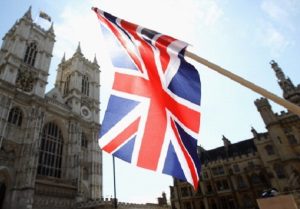Elon Musk’s Tesla lobbied UK to charge petrol drivers more
3 min readElon Musk’s electric vehicle company, Tesla, has been involved in lobbying the UK government to increase costs for petrol car owners in the wake of the 2024 general election. In a move that would potentially increase profits for the electric car manufacturer, Tesla urged the government to push forward policies that would benefit electric vehicles (EVs) while burdening those who continue to drive petrol and diesel cars.
Following the Labour Party’s victory in the general election, Tesla’s European boss, Joe Ward, sent a letter to UK roads minister Lilian Greenwood, calling for the government to introduce higher fees for consumers purchasing new petrol or diesel cars. Ward suggested that the additional revenue could then be used to subsidize the purchase of electric vehicles. The letter, revealed through a Freedom of Information request made by the EV-focused newsletter The Fast Charge, praised the Labour Party’s stance on decarbonizing the energy system by 2030 and pushing for a net-zero emissions goal. The message was sent in July, just weeks before Musk became openly critical of the UK government over the summer riots.
Tesla’s letter also asked for the Zero Emission Vehicle (ZEV) mandate to be extended, a policy that encourages car manufacturers to sell a specific number of electric vehicles every year. The mandate requires automakers to purchase credits from other companies if they fail to meet their targets. Tesla, with its extensive portfolio of electric vehicles, would benefit greatly from this policy, as it could sell surplus credits from its imports of EVs made in China.
The letter, which Tesla sent to the government, advocated for the strengthening of the ZEV mandate, arguing that it should not only be preserved but expanded. The company warned that any weakening of the policy could have a negative impact on the UK’s efforts to reduce emissions and transition to a cleaner transportation system. In doing so, Tesla positioned itself to potentially profit from the sale of excess ZEV credits to other automakers.
Tesla has long been a major player in the electric car industry, and the UK government’s current discussions about the future of the ZEV mandate come at a critical moment. UK automakers have been lobbying for a more lenient approach to the mandate, arguing that consumer demand for electric cars is not yet sufficient to meet the targets set by the government. The pushback from domestic manufacturers presents a challenge to the government’s ambitions to boost electric vehicle adoption, and Tesla has positioned itself as a key advocate for a stronger mandate to protect its business interests.
While Tesla has been focused on increasing its market share in the UK and Europe, Musk has also had a significant impact on UK politics in recent months. He has used his social media platform to voice his political views, including criticism of Labour Party leader Sir Keir Starmer. In one notable post, Musk predicted “civil war” and openly clashed with Starmer on various issues. These controversial political statements have caused friction between Musk and the UK government, as evidenced by his exclusion from a government investment summit in September. According to reports, Musk’s outspoken political views were part of the reason he was not invited to the event, despite Tesla’s prominent role in the electric vehicle market.
As a billionaire businessman, Musk’s influence extends far beyond the realm of electric vehicles. He has become a key ally to US President Donald Trump, and the surge in the value of his Tesla stake has contributed to a massive increase in his personal wealth. Despite the tensions between Musk and the UK government, Tesla continues to push for policies that could benefit its business, especially those related to the EV market and the ZEV mandate.
Tesla’s push for higher fees on petrol car drivers and its lobbying efforts to strengthen the ZEV mandate reflect the company’s strategy to secure a dominant position in the electric vehicle market. By aligning itself with the UK’s ambitious climate goals, Tesla aims to cement its place as a leader in the transition to greener transportation, even as it navigates the political and regulatory landscape in multiple countries.








